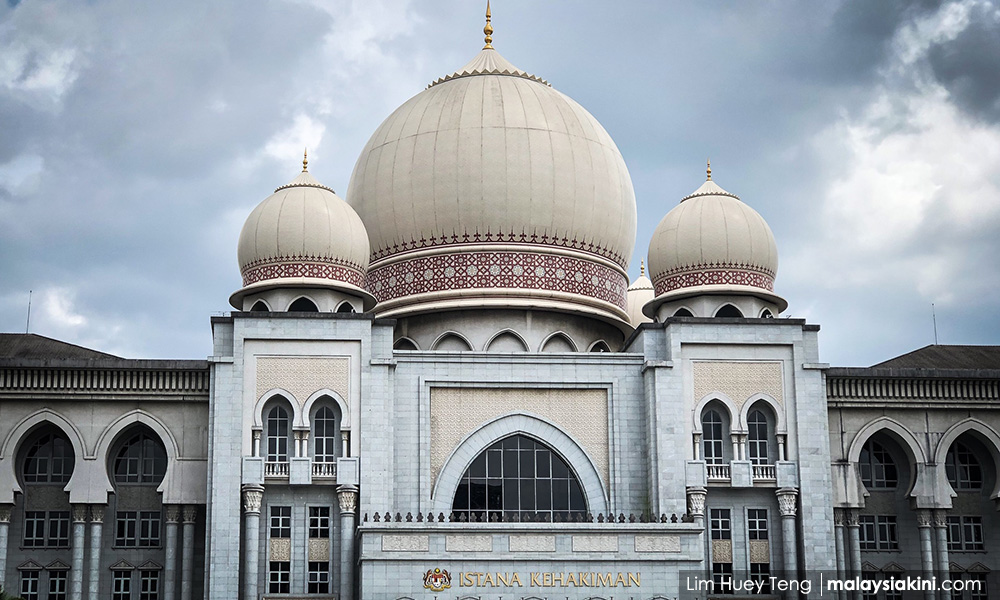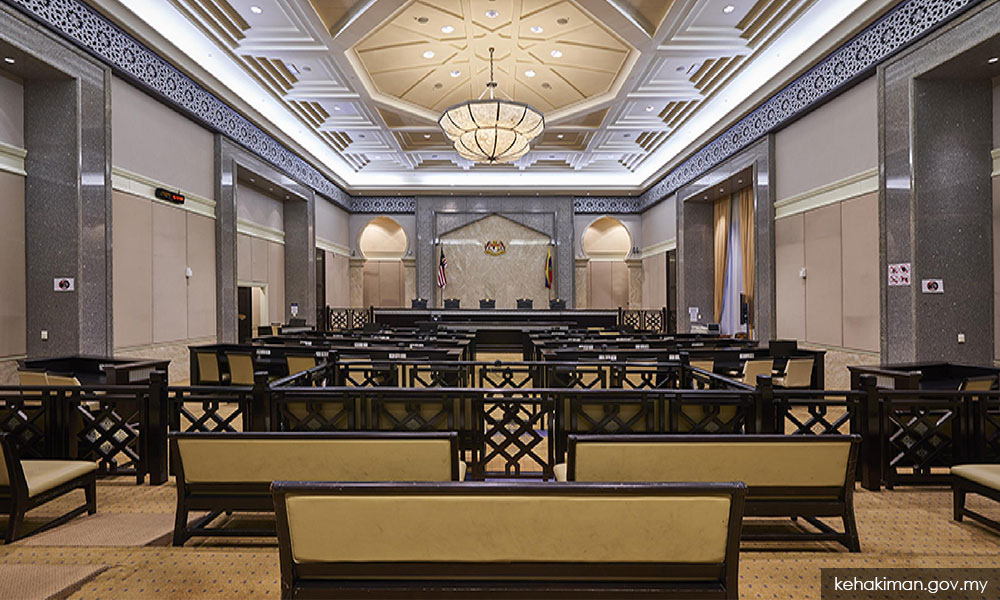Former chief justice Zaki Azmi has spoken out against the tendency by certain defence lawyers to seek postponements of cases being heard in court.
He urged judges to be more selective before allowing such a practice.
In an interview with Bernama, Zaki also suggested that the Federal Court make a ruling that ongoing trials should not be held back just because of interlocutory applications by lawyers.
He said tactics used by such lawyers mainly came in the form of filing all sorts of interlocutory applications, irrespective of whether the applications would be heard or likelihood of success.
If such an application is heard and the decision is made against them, they then would file an appeal against the ruling, resulting in the main case being postponed pending the disposal of the (appeal) application, he said.
"Judges should not allow lawyers to play delaying tactics by making frivolous applications.
"When they (judges) decide against them, there will be appeals against the orders. This delay is further compounded by the Court of Appeal taking its time to hear and decide (the appeal)," said the retired chief justice.
Zaki added that during his tenure as chief justice for three years from 2008, he was very strict against such postponements.

“If you go back to the time when I was chief justice, there were cases pending as long as 20 years.
"Statistics show that in the High Court, in the first year I took over, there were 44,000 cases within the year 2009, I reduced that figure to only 9,000. That means one quarter in one year," he said.
"How did we do it? It’s history. But the most important thing is no postponement,” stressed Zaki, who was a practising lawyer before being directly appointed as a Federal Court judge in September 2007, the first such direct appointment in the country's judicial history.
'Justice hurried, justice buried'?
Zaki said initially, lawyers came up with the "Justice hurried is justice buried" slogan, but later also financially benefited from these postponements – although there are some who only do so because of their clients' demands.
The retired judge also revealed that said there were also lawyers who "specialised in delay tactics."
“When I was in private practice before, when clients came to see me and asked me to delay the case, they would say 'Don’t worry, we want to pay the fees, can you just delay for me?'
"My answer to them, I don’t do that kind of work. You want to delay, go and see some lawyers who specialise in that matter."
Sharing his vast experience in the legal profession, Zaki said the process of justice would normally be delayed when there were such interlocutory applications.
"Thus, the main case cannot go on. So, in some instances, the judge stays the main case pending the disposal of the application.
"Because the argument is 'If I win this interim application, you don’t waste your time to hear the case'.
"What was the result of the delay? Now, when we talk about justice... justice means quick disposal,” he said, adding that in this scenario, justice delayed is justice denied
Citing an example, Zaki said there was a rape case in Sungai Petani where the proceedings had taken nine years to complete.
“Imagine the victim and witnesses having to come to court over and over again. People always talk about justice to the accused person. Many forget justice to the victim.
"Justice to the victim is to get the accused person punished quickly, but if you keep on delaying like this, a case cannot move,” he stressed.
In order for the case to proceed as scheduled, Zaki said the judge must be firm and strong enough not to adjourn or stay the hearing while the interim application was being heard.
“What is important is the judge must be firm and strong enough to stand by and say that if you want an interlocutory application, or you want to appeal against my interlocutory order, that's your right, but I will still go ahead with the main case.
"If you succeed in your appeal and that I am wrong, then I will decide accordingly,” he said.
To this, Zaki said he had an experience on delaying tactics by a lawyer where when the court wanted to hear the case, the lawyer claimed he was not free from Monday until Friday morning.
“He said Monday cannot... Tuesday cannot... Wednesday cannot.. and I said Friday afternoon I see you. I managed to finish the case and he won the case," he said.
He added, however, that it was the right of the accused or plaintiff to file such applications, and the court could not stop any of the parties from filing applications if they wanted to.
“It’s up to the judge to make a decision. It's a matter of discretion of the court."
“Cases cannot be delayed by interlocutory applications. While they are being heard, the main case must proceed," said Zaki, the son of another former chief justice, the late Azmi Mohamed.
When Zaki was made chief justice, it was the first time in world history that a father and son had headed a nation's judiciary.
Azmi was chief justice (then called Lord President of the Federal Court) from 1968 to 1974.
- Bernama


